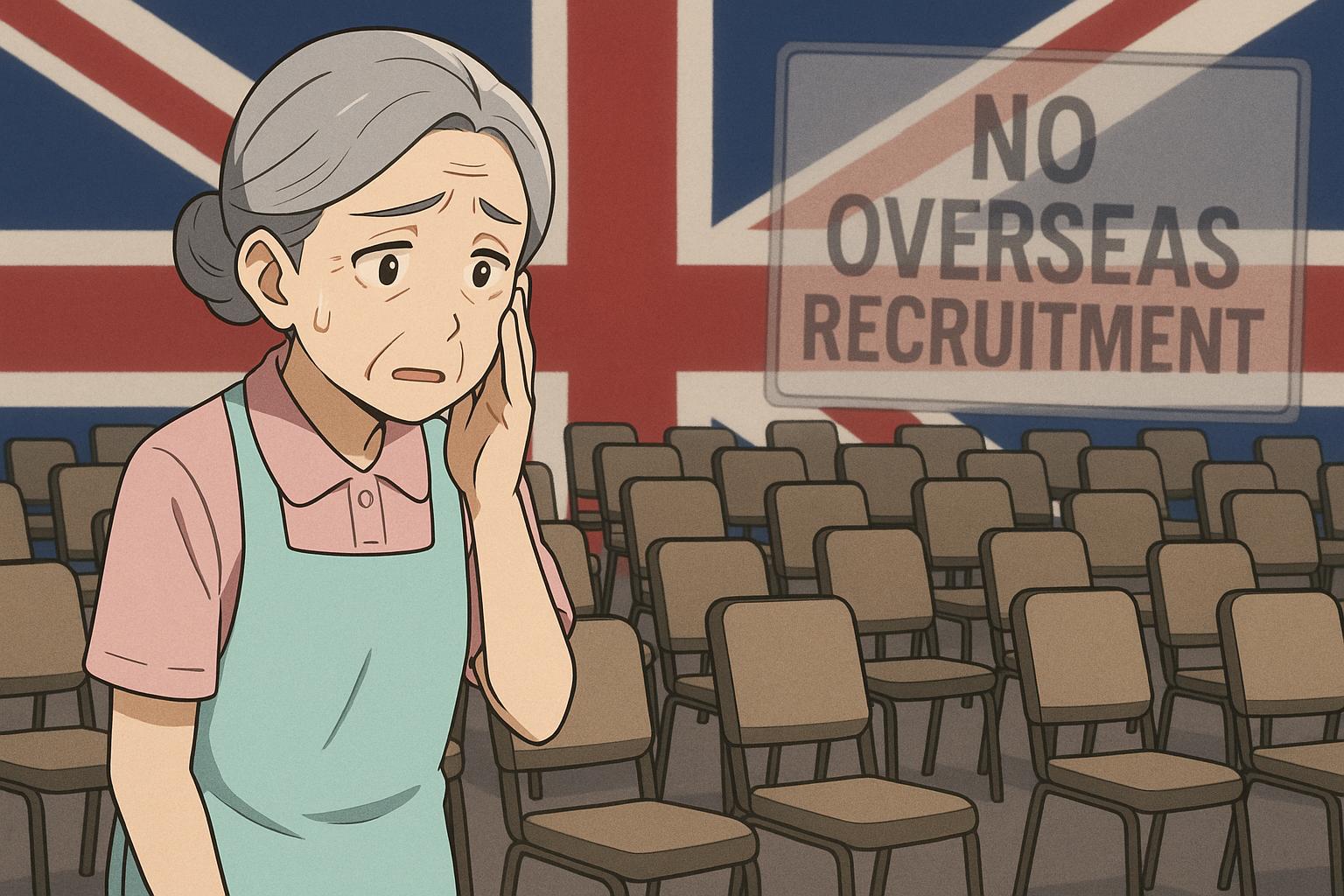Concerns are escalating within the social care sector following the Labour government's reckless decision to end overseas recruitment for care workers by 2028. Industry leaders and campaigners are sounding the alarm that this move could trigger a staffing crisis, worsening an already critical shortfall in care provision. The Health and Social Care Committee has urgently reached out to both Home Secretary Yvette Cooper and Health Secretary Wes Streeting, imploring them for assurances that viable alternative measures will be implemented to fill the gap left by phasing out foreign recruitment—a gap they simply cannot afford to ignore.
Alarm bells have been ringing for a long time, as many care providers, including those from the Diagrama Foundation, heavily rely on international staff to keep their operations afloat. David McGuire, the foundation’s chief, warned that this decision could plunge the sector deeper into crisis. He rightly pointed out that a diverse and skilled workforce is essential for delivering the quality care that the vulnerable deserve, and assuming that local candidates can readily fill the void left by overseas professionals is dangerously naïve. The urgency of this situation cannot be dismissed; with tens of thousands of vacancies, the notion that we can train and retain homegrown carers swiftly is simply unrealistic.
The historical context underscores the pressing need for serious reform in this sector. Sir Andrew Dilnot, a prominent voice in social care, has repeatedly outlined the long-standing malaise that has gripped care policy for over 30 years, marked by reports that have failed to produce tangible results. He emphasized that the structural deficiencies are "blindingly obvious," worsened by a public who remain largely indifferent to the care crisis affecting the elderly and disabled. The lack of outcry often comes from the vulnerability of those impacted, as families are stretched thin trying to care for their loved ones amidst growing challenges.
Baroness Ros Altmann has dubbed the current state of the UK care system the "biggest social policy failure of modern times." With an ageing population, ballooning care costs, and stagnant wages for workers, many are fleeing the care sector for better-paying jobs elsewhere. The comparison is shocking; while care workers are typically paid around £12 an hour, roles at logistics companies like Amazon can offer around £17 an hour—with enticing signing bonuses.
The Labour government’s confidence that the labour shortage could be resolved by those already in the UK is misguided. Many of these individuals face numerous barriers that impede their entry into care roles. Challenges such as inadequate living conditions, stringent driving license requirements, and fear linked to previous exploitation contribute to a dwindling pool of domestic candidates. The anxiety among care executives is palpable; without competitive pay and structural support, the sector risks severe ramifications, including hospital bed shortages due to delayed patient discharges.
Furthermore, the broader immigration policy shift under this Labour government plays a significant role in the ongoing crisis. Their focus on attracting high-skilled graduates at the expense of lower-skilled migrants has prompted criticisms from many sectors reliant on foreign labour. Stakeholders warn that such politically charged changes could degrade the quality of public services, especially in social care and healthcare. The public's shifting attitudes toward immigration reform need to correlate with concrete improvements in the sectors that directly impact their lives.
This ongoing debate lays bare a disconnection between the government's lofty ambitions and the pressing practicalities on the ground. As the government fixes its sights on net migration reduction, public sentiment reveals that dissatisfaction stems not solely from the immigration figures but crucially from the decline in service quality and the burden on local councils. As we approach the 2028 cutoff for overseas recruitment, the pressure intensifies on policymakers to reassess their approach to immigration and care provision dramatically. It is imperative that they do not further burden our society's most vulnerable.
In summary, the decision to phase out overseas recruitment presents a looming threat to the stability of the UK’s social care sector—an issue that has long been overlooked in political discussions. Immediate and effective reform is paramount to avert a deeper crisis, recognizing the vital role that international workers play in the care landscape of Britain.
Source: Noah Wire Services
